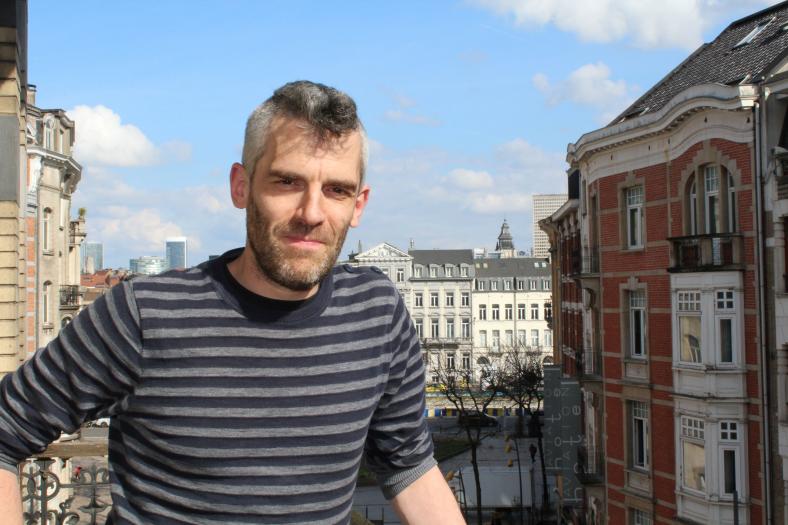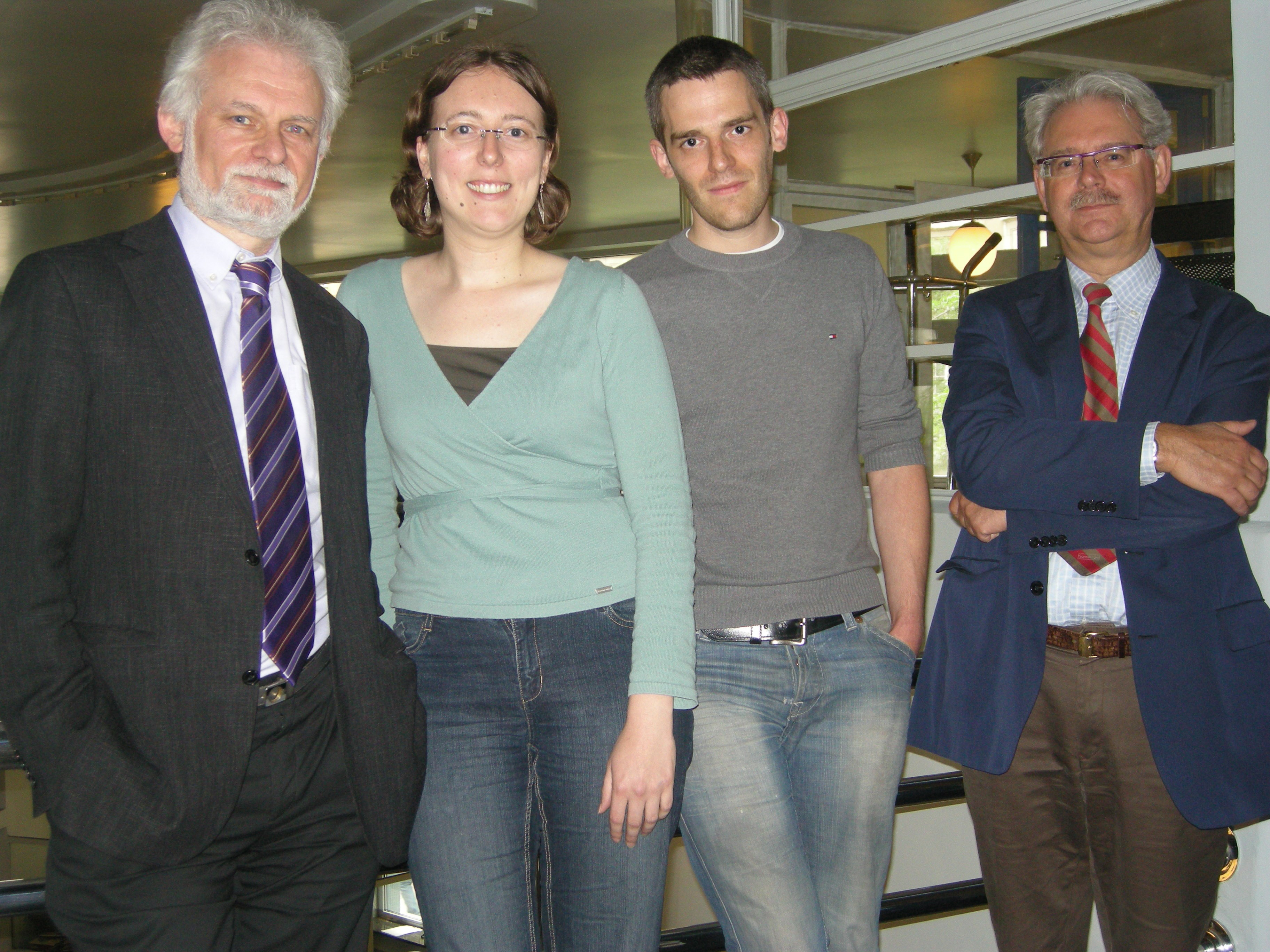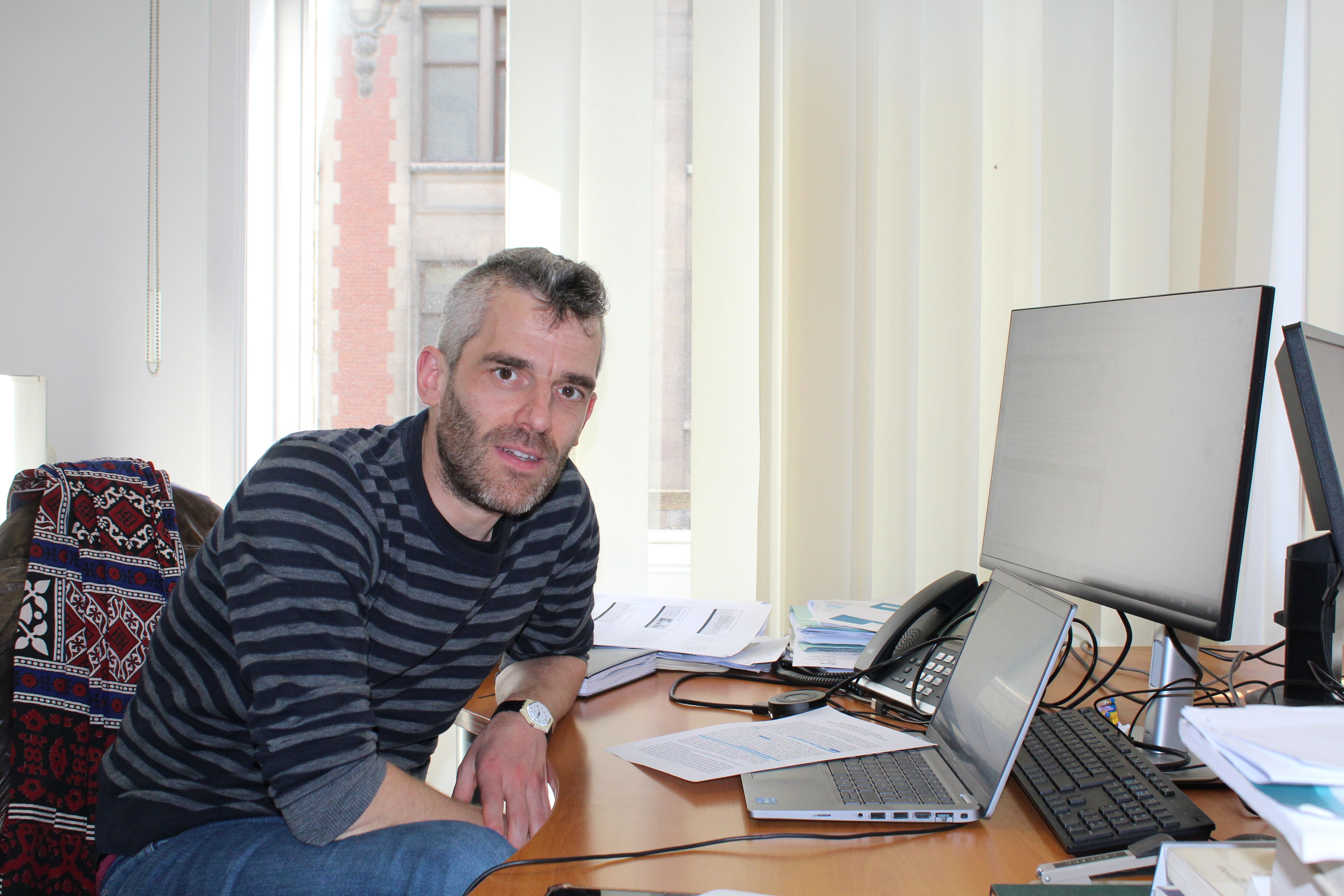THREE QUESTIONS TO ... Widukind De Ridder,
in charge of implementing the FED-tWIN Belcowar project at CegeSoma/State Archives

Widukind, you joined CegeSoma in October 2022 as project manager for the FED-tWIN Belcowar project, which focuses on the economic aspects of the Cold War in Belgium. You work part-time at CegeSoma/State Archives and part-time at KULeuven. But this isn't your first experience at CegeSoma... What was your background before getting this job?
It was a journey filled with all kinds of experiences, from backpacking in England and Eastern Europe to my first experiments in scientific writing and teaching... Looking back, however, I notice that a common thread began to emerge during my Masters in contemporary history at the VUB, with a marked interest in the political and economic history of the post-war period. I was interested in observing the impact of the economy on society, but also in studying the link between state and economy, particularly in the context of what is commonly referred to as the pillarization of Belgian society - the social structuring between the Catholic, liberal and socialist pillars.
I think my taste for research came while writing my dissertation on the Belgian Communist Party, which my future PhD thesis sponsor, Peter Scholliers, encouraged me to synthesize into an article and which I then submitted to the Belgian Journal of Contemporary History... currently published by CegeSoma. I wanted to write about a political party that was no longer linked to a pillar. Alain Meynen, the late archivist of Dacob - the Dutch-speaking equivalent of the Centre des Archives du Communisme en Belgique (CArCoB) - always encouraged me to carry out research and publish my findings. That's how I started publishing, among other things, on 19th century political thought, at a time when I was preparing a doctoral thesis on the introduction of social legislation in Belgium in the 1880s, and more specifically on wage systems in the textile industry in Ghent and in the glass industry in Charleroi.

A four-year adventure that took me, improbably, to New York... to a research center where a collector had sold all the archives relating to the glass industry in Charleroi!
After this thesis and various publishing experiences, I was lucky enough to work at CegeSoma with Emmanuel Gerard and Françoise Muller on the August 1950 assassination of Communist leader Julien Lahaut. I then had the opportunity to teach history and politics at the Collège Vesalius in Brussels and to work on interculturality for an NGO in Molenbeek, before returning to CegeSoma as part of the Belcowar project.
What are the advantages of working both in academia and in a federal scientific institution?
I find it very interesting to work in a bilingual federal environment. It allows researchers to exchange views on the differences between French- and Dutch-speaking approaches. What's more, my position enables me to raise students' awareness of the archive world. Indeed, while a large number of archives relating to political economy have been opened up to research since the 2000s, I've observed that academics rely less and less on these collections in their work, and that the students I supervise have lost this reflex. I'm trying to counter this by building bridges between the academic world and archives. This autumn, for example, I organized a seminar session with my students at CegeSoma, so that our archivist, Gertjan Desmet, could talk to them about the specificities of archives. I hope this will encourage them to use archives in their work.
How would you like to see the historian's craft evolve?
 With the current world conflicts, I think we need to focus more on the socio-economic and political aspects, so that we can better analyze what surrounds us, from a critical and not just a moral point of view. This history is often perceived as more "arid", but in my opinion it is essential to continue to dedicate research projects to it, so that it can serve society and its emancipation. I find, for example, that CegeSoma's public history meetings perfectly fulfil this objective, by bringing the general public into contact with complex subjects, while at the same time providing the necessary insights.
With the current world conflicts, I think we need to focus more on the socio-economic and political aspects, so that we can better analyze what surrounds us, from a critical and not just a moral point of view. This history is often perceived as more "arid", but in my opinion it is essential to continue to dedicate research projects to it, so that it can serve society and its emancipation. I find, for example, that CegeSoma's public history meetings perfectly fulfil this objective, by bringing the general public into contact with complex subjects, while at the same time providing the necessary insights.
Finally, I'd like to see more people from immigrant backgrounds and more women in this discipline. In my spare time, I'm involved with the non-profit organization 'Archives des Afro-descendants de Belgique' (‘Archives of Afro-descendants in Belgium’), which is trying to raise awareness among immigrants of the need to collect archives, particularly audiovisual ones.
Thank you Widukind! And before concluding, any discoveries that caught your eye while digging through Cold War archives?
By consulting the archives of companies linked to the port of Antwerp, I was able to discover how the theoretical principles of the Marshall Plan - a program launched by the United States to help rebuild Europe - were translated on the ground. At the time, business leaders sent letters to Brussels questioning the presence of Americans in their companies... In reality, these were controllers sent by the United States, to make sure that Belgians weren't exporting products that would be used in Eastern European countries! To deal with this somewhat embarrassing situation, a Belgian-style compromise was reached: future controls would have to be announced in advance and conducted in the presence of Belgian officials. These facts show that around 1950 a balance had to be found between security policies, the country's economic interests and the potential threat of industrial espionage.